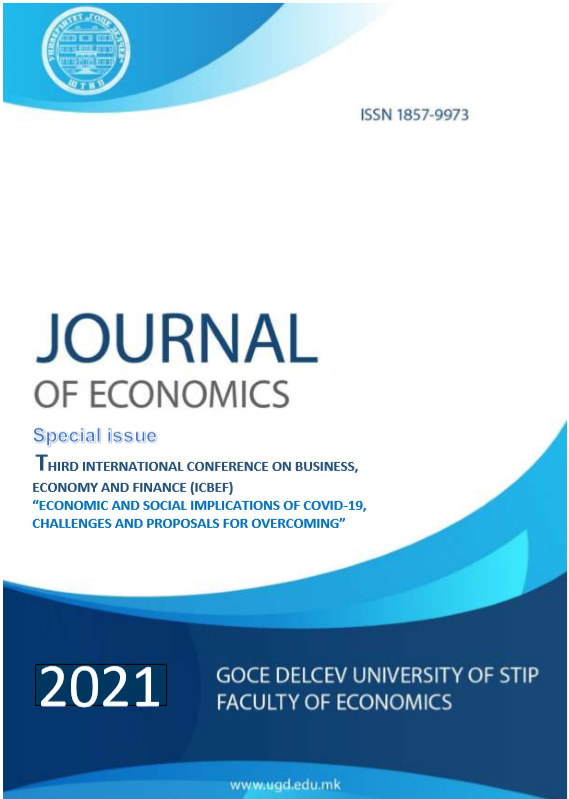Fiscal Challenges in Pandemic Times
DOI:
https://doi.org/10.46763/JOE2160109gKeywords:
Covid-19, fiscal policy, public debt, public expenditure, tax policyAbstract
The unexpected health crises that appeared at the end of 2019 and endures currently had
triggered serious government challenges in conducting efficient fiscal policy. The growing
health, educational, social, and other costs corelated with the health crisis had raised
intense reactions in governments through higher public expenditures that were financed
dominantly from international financial markets. Already higher public debt to GDP ratio
in some countries overcome the Maastricht criteria of this crucial fiscal variable that raised
some serious questions for future government financial responses. This pandemic opened
some suggestions and considerations for major or minor tax reforms in some countries.
If previously the governments were repellent to introduce some tax changes, now they see
opportunity to easily justify this fiscal step. The people subjected to COVID-19 disease are
addressing more publicly the need for substantial government help regarding the health
costs. The IMF surveys show that people who faced this illness are more demanding for
changes in distributional fiscal function. The companies and households with extra profits
and income should be taxed with higher income tax rates and corporate taxes. The reason
for this demand is the ongoing process of unevenly distributed national income that in
pandemic circumstances affects more lower layers of income households. However, the
real sector in North Macedonia is publicly against higher tax rates, and they demand from
government first to legalize the grey economy that they perceived as serious competitive
and fiscal problem.


